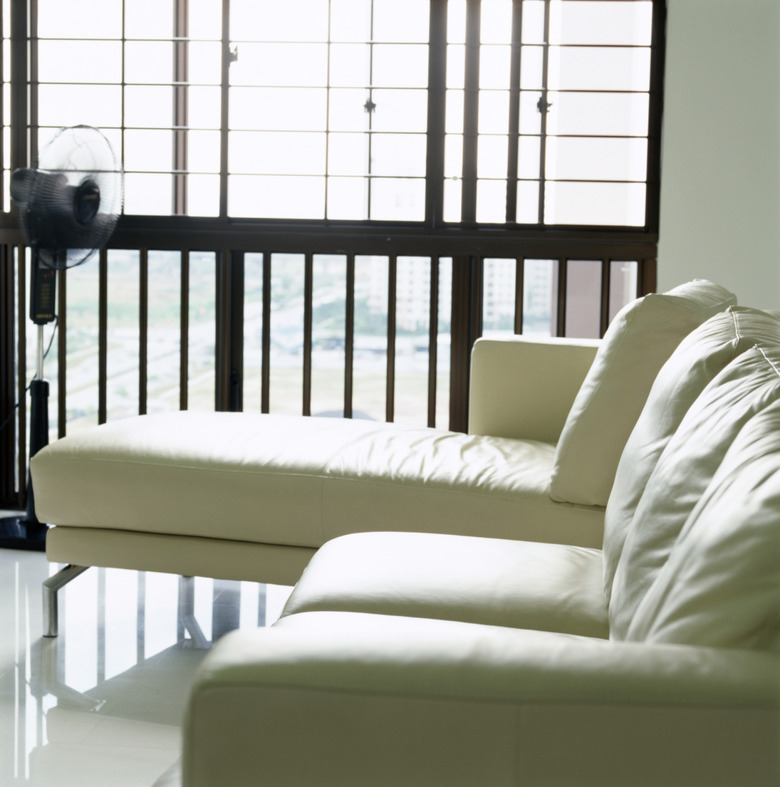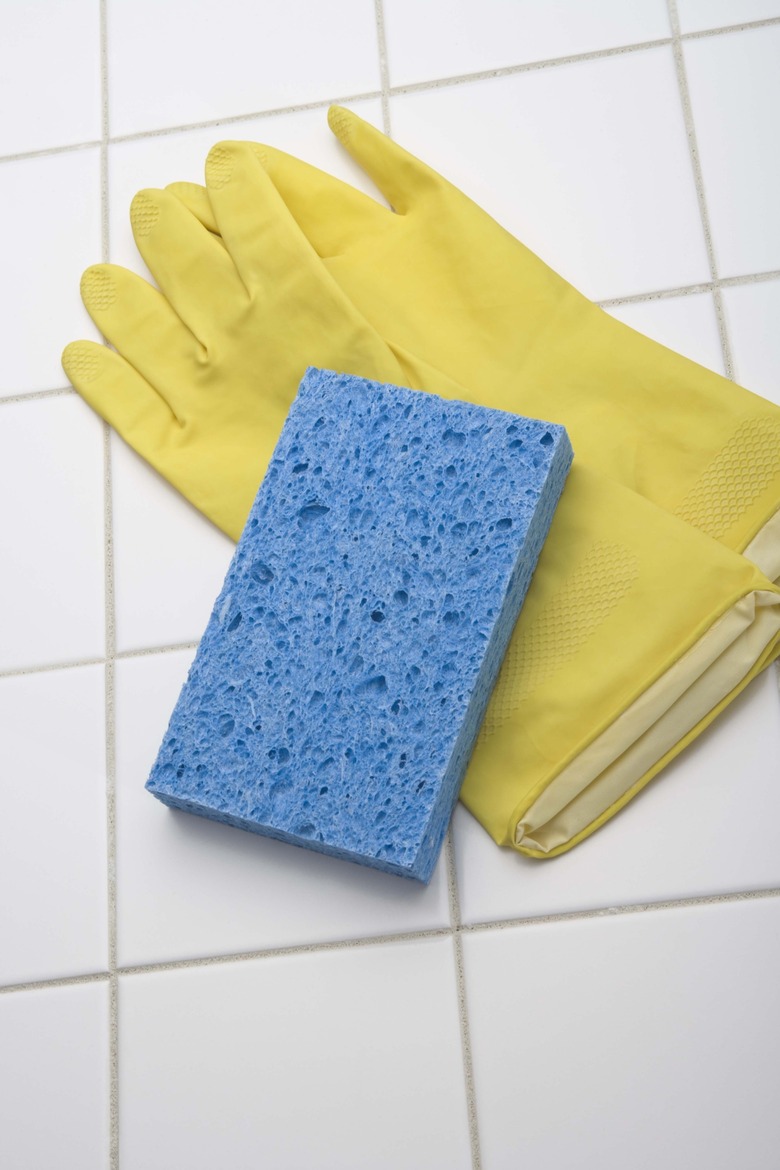How To Make A Leather Couch Less Slippery
Things Needed
-
2 buckets
-
1 cup rubbing alcohol
-
Sponge
-
Clean cloths
-
1 tablespoon white vinegar
-
1 tablespoon neat's foot oil
-
Bowl
-
Spoon
A new leather couch is a luxurious addition to your decor. But attempting to remain in one place on it can be an unexpected difficulty. Wax coating gives your leather couch extra eye appeal while it's still in the showroom, and protects and moisturizes the leather, too. Once your new leather couch is home, you might find the wax makes the surface feel like an oil slick or ice skating rink. You can make your leather couch feel less slippery with supplies found readily around the home.
Step 1
Fill one bucket halfway with warm water. Set the bucket aside.
Step 2
Pour 1 cup of warm water into the second bucket. Add 1 cup of rubbing alcohol to the water to make a wax, oil and grease-cutting solution.
Step 3
Soak a sponge in the rubbing alcohol mixture. Squeeze the wet sponge to remove excess solution.
Step 4
Scrub the seating area of your slippery leather couch. Wash the seat cushions, back rest area and armrests with the diluted rubbing alcohol to remove the slippery wax coating.
Step 5
Dip a clean cloth in the rinse water bucket. Wring out the cloth. Rinse the leather couch by wiping it off with the damp cloth. Dry the surface with another cloth.
Step 6
Combine 1 tablespoon each of white vinegar and neat's foot oil in a bowl. Stir the two ingredients together with a spoon.
Step 7
Moisten a clean cloth with the vinegar and oil solution. Rub the mixture into the leather to clean off any remaining wax residue while moisturizing the surface. Wipe off excess vinegar and oil mixture with a dry cloth. This mixture maintains the leather's suppleness and makes it soft, without making it slippery.
Tip
Dust and wipe off the leather in between washing to prevent stains and slipperiness due to stain material.
Warning
Do not use furniture polish to dust or moisturize a leather couch. This type of moisturizer sits on the surface and makes it slippery, rather than being absorbed to make the leather supple.

